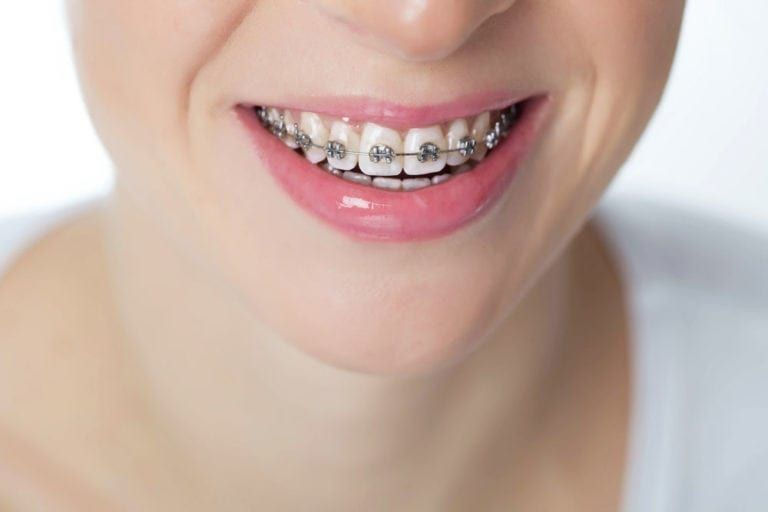Signs It’s Time to Get Your Wisdom Tooth Removed
- dclinicdubai
- Apr 14
- 4 min read
Wisdom tooth extraction in Dubai is a common dental procedure for many adults as they experience discomfort or complications related to their third molars. These molars, located at the back of your mouth, typically emerge between the ages of 17 and 25. While some individuals may not experience any issues, others may need to have their wisdom teeth removed due to pain, infection, or alignment problems. If you’re experiencing any of the signs below, it might be time to consult with a dentist about the possibility of wisdom tooth extraction in Dubai.

Understanding Wisdom Tooth Problems:
Most people will experience some level of discomfort as their wisdom teeth begin to emerge. In some cases, this is a normal part of dental development, but if the teeth don’t have enough space to grow in properly, they can cause a range of issues. Understanding the common problems associated with wisdom teeth can help you identify when it might be time for an extraction.
Wisdom teeth that are impacted (unable to break through the gums) can lead to pain, swelling, and even infection. Additionally, wisdom teeth may push against adjacent teeth, leading to misalignment and bite issues. Some common symptoms of problematic wisdom teeth include:
Pain in the back of the mouth
Swelling or tenderness around the gums
Difficulty opening the mouth
Bad breath or an unpleasant taste
Gums that bleed or become infected
Pain and Discomfort:
One of the most obvious signs that it’s time to get your wisdom tooth removed is persistent pain or discomfort in the back of your mouth. The pain may begin as a dull ache or feel more like throbbing, depending on the level of the issue.
If the pain becomes severe or radiates to other areas of your mouth or jaw, this could be an indication that your wisdom tooth is impacted or infected. The pressure from the tooth pushing against other teeth can also cause soreness or tension in your gums and jaw.
Swelling and Gum Infection:
If you notice persistent swelling in your gums, it’s important to consider whether your wisdom tooth is the cause. Impacted wisdom teeth can create pockets where bacteria can collect, leading to gum infection and inflammation. This can cause significant swelling and tenderness in the area, which may be accompanied by a foul odor or taste in the mouth.
Swollen gums around your wisdom teeth are often a clear indicator that you may need to undergo wisdom tooth extraction in Dubai. If left untreated, these infections can worsen and even spread to other areas of the mouth, causing more severe health issues.
Misalignment or Crooked Teeth:
Wisdom teeth can sometimes lead to changes in the alignment of your teeth. As they attempt to emerge, they may push against the teeth in front of them, causing your teeth to shift. This can result in overcrowding or misalignment, which may affect both the function and appearance of your smile.
If you notice your teeth becoming more crowded or your bite is feeling uneven, this could be a sign that your wisdom teeth are contributing to these problems. Extraction can prevent further misalignment and restore proper dental function.
Difficulty in Maintaining Oral Hygiene:
Wisdom teeth that are partially erupted or impacted can create spaces that are difficult to clean properly. This leads to a higher risk of plaque buildup, which can result in tooth decay, gum disease, and even abscess formation. When wisdom teeth are difficult to reach, they may contribute to poor oral hygiene, making it harder to brush and floss effectively.
If you find it challenging to clean the area around your wisdom teeth or notice that plaque and tartar are accumulating despite regular brushing, it may be a good idea to consult with your dentist about potential extraction options.
Cyst Formation and Damage to Surrounding Teeth:
In some cases, impacted wisdom teeth can cause cysts or fluid-filled sacs to develop around them. These cysts can damage the surrounding bone and teeth, potentially leading to tooth loss or other complications. If a cyst forms, it could cause additional discomfort or swelling and may require surgical intervention to prevent further damage.
The presence of cysts around wisdom teeth is a serious concern, and it’s important to seek professional dental advice if you suspect this might be the case.
Persistent Headaches or Jaw Pain:
If you’re experiencing unexplained headaches or jaw pain, it could be related to your wisdom teeth. The pressure from impacted or improperly aligned wisdom teeth can lead to tension in the jaw muscles, causing discomfort and headaches. These symptoms may worsen over time if the issue is left untreated.
If you notice that your headaches or jaw pain seem to be linked to your wisdom teeth, it might be time to talk to your dentist about the possibility of extraction to prevent further complications.
Final Thoughts:
Deciding whether to undergo wisdom tooth extraction in Dubai should be based on a careful assessment of your symptoms and dental health. If you're experiencing persistent pain, swelling, misalignment, or difficulty maintaining oral hygiene, it may be time to consider this procedure. Your dentist will be able to evaluate your condition and recommend the best course of action.
Wisdom tooth extraction is a routine procedure, and in many cases, it can prevent more serious complications such as infections, damage to adjacent teeth, and chronic pain. If you're experiencing any of the symptoms mentioned above, don't hesitate to consult with a professional to determine if extraction is the right choice for you.
Ultimately, addressing any issues with your wisdom teeth early on can lead to better oral health and a more comfortable, pain-free future.


Comments